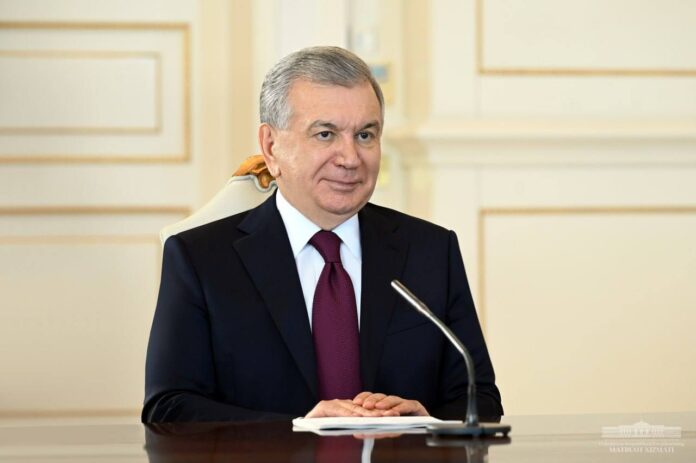Shavkat Mirziyoyev, the President of Uzbekistan since 2016, has been a pivotal figure in the country’s journey towards economic growth and modernization. Taking the reins of a nation burdened by historical legacies, Mirziyoyev has demonstrated visionary leadership and an unwavering commitment to ushering in a new era of economic prosperity. His comprehensive reforms and strategic policies have positioned Uzbekistan as a rising star in the global economy, attracting investment, fostering innovation, and improving the lives of its citizens.
A Legacy of Reform
When Mirziyoyev assumed office in 2016, he inherited a nation plagued by inefficiencies, corruption, and a lack of foreign investment. Recognizing the need for transformative change, he embarked on a journey of reform aimed at liberalizing the economy, enhancing the business environment, and fostering international partnerships.
One of his earliest initiatives was the “Year of Dialogue with the People and Human Interests,” a campaign focused on addressing public concerns and ensuring government responsiveness. This marked the beginning of his efforts to build trust between the government and citizens, a crucial foundation for economic growth.
Diversification and Investment
A significant driver of Uzbekistan’s economic growth under Mirziyoyev has been the diversification of its economy. Historically reliant on cotton and natural gas exports, the President recognized the need to reduce dependence on these commodities. This led to the “Strategy of Actions,” a comprehensive roadmap that outlined the country’s development goals, including economic diversification.
Mirziyoyev’s administration actively courted foreign investors, simplifying bureaucratic processes, and offering incentives to attract capital inflow. The establishment of the “Invest Uzbekistan” portal streamlined the investment process and provided valuable information to potential investors. These efforts resulted in a significant increase in foreign direct investment, fueling economic growth across various sectors.
Improving the Business Environment
Recognizing the importance of a conducive business environment, Mirziyoyev initiated sweeping reforms to reduce bureaucratic hurdles and corruption. His administration introduced measures to protect private property rights, enforce contracts, and promote fair competition. This not only attracted foreign investors but also encouraged local entrepreneurship and innovation.
In a bold move, Mirziyoyev abolished the practice of forced labor in the cotton industry, a step that earned international recognition and improved the country’s global reputation. This commitment to human rights and labor standards further contributed to fostering a positive business climate.
Infrastructure Development and Connectivity
Infrastructure development has been a cornerstone of Mirziyoyev’s economic vision. Recognizing the importance of connectivity, the government invested heavily in transport and energy infrastructure projects. The “New Silk Road” initiative aimed to improve trade routes and enhance Uzbekistan’s role as a key transit point between Asia and Europe.
Projects like the construction of new railways, modernizing airports, and improving road networks have not only bolstered domestic connectivity but also increased the country’s attractiveness for trade and investment. The completion of the Kamchik Pass tunnel, which connects the Fergana Valley to the rest of the country, stands as a symbol of Uzbekistan’s commitment to infrastructure development.
Social Welfare and Human Capital Development
Mirziyoyev’s economic vision extends beyond just GDP growth; he places great emphasis on improving the lives of his citizens. His administration has invested in education, healthcare, and social welfare programs, aiming to enhance human capital and create a more inclusive society. The “Five Initiatives” program focuses on improving education, healthcare, employment, the environment, and spiritual development.
By prioritizing education and skills training, Uzbekistan is better poised to meet the demands of a rapidly changing global economy. These investments in human capital are essential for sustaining long-term economic growth.
Conclusion
Shavkat Mirziyoyev’s leadership has propelled Uzbekistan onto the path of economic transformation and growth. His bold reforms, commitment to diversification, and emphasis on infrastructure and human capital development have attracted international attention and investment. As Uzbekistan continues to evolve into a modern and competitive economy, Mirziyoyev’s legacy will undoubtedly be remembered as that of an architect of change and progress.






